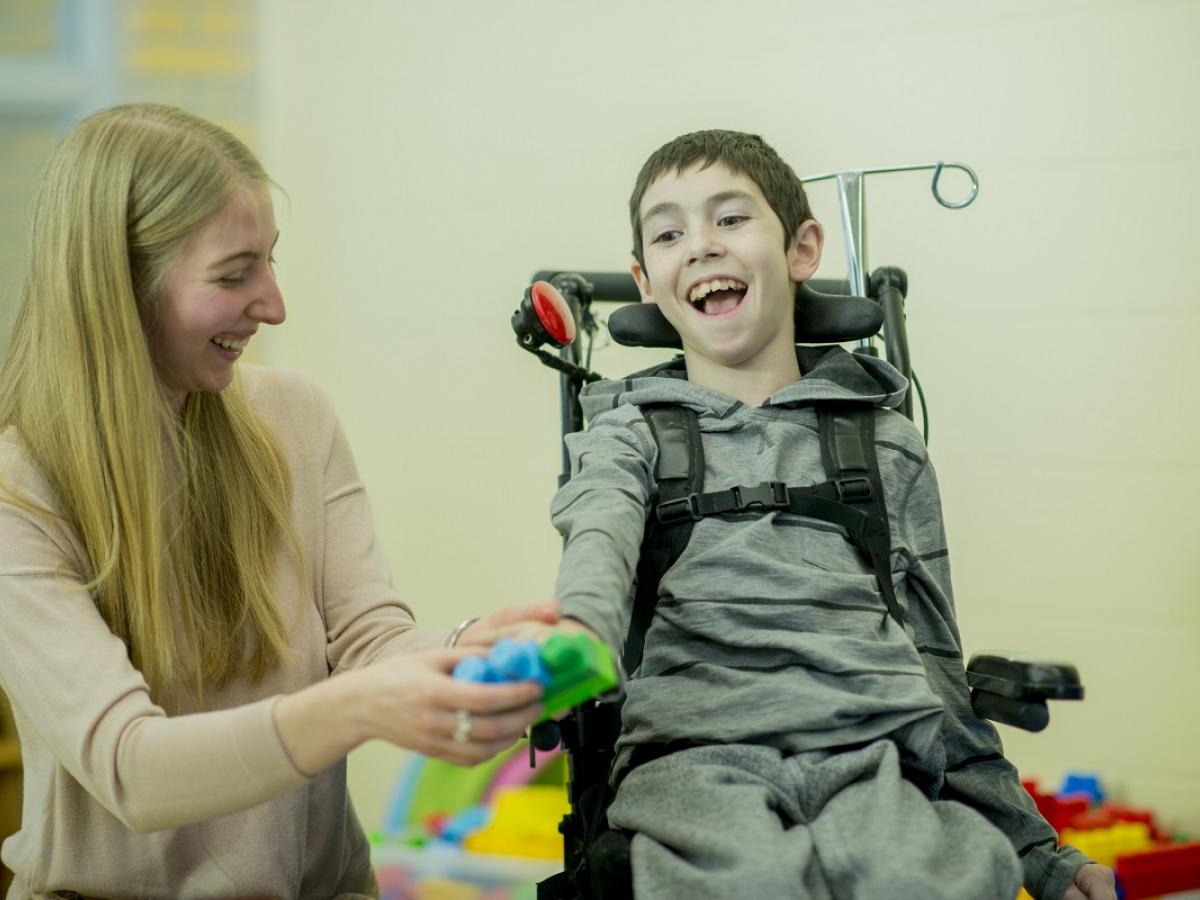Major cerebral palsy gene revealed

A confirmed genetic diagnosis of cerebral palsy allows families to create specific healthcare plans for people with the disease. Photo: iStock.
Researchers from the University of Adelaide have identified the gene that is the most common genetic cause of cerebral palsy, increasing the chances of finding better treatments for the debilitating disease.
The study – published in Genetics in Medicine, the official journal of the American College of Medical Genetics and Genomics – also established a laboratory test for the gene involved that provides greater certainty of a genetic diagnosis.
“Using the most commonly affected gene associated with cerebral palsy as a leading example, we showed that assignment of cerebral palsy diagnosis is inconsistent,” said senior author Mark Corbett, from the Australian Collaborative Cerebral Palsy Research Group at the Robinson Research Institute and Neurogenetics Research Program at the University’s Adelaide Medical School.
“An inconsistent diagnosis may affect access to services relevant for treatment and support for those living with cerebral palsy.
“The myth that cerebral palsy is due to difficulties at birth is often being rejected when there is access to modern genetic testing.”
Each of the individuals involved in the study had a genetic variant in a gene called CTNNB1, which can cause a neurodevelopmental disorder with spastic diplegia and visual defects. It is the most common monogenic (single mutation) cause of cerebral palsy.
“Our paper increases the visibility of the condition and makes it a more viable target for drug companies developing therapies for rare diseases. Early interventions of cerebral palsy can reduce the severity of disability and lower the barrier of participation in a range of societal activities, which benefits us all.” Senior author Mark Corbett, from the Australian Collaborative Cerebral Palsy Research Group at the Robinson Research Institute and Neurogenetics Research Program at the University’s Adelaide Medical School.
“We found six times the number of people were genetically diagnosed with the disorder than is typically quoted in previous studies,” Corbett said.
“Our paper increases the visibility of the condition and makes it a more viable target for drug companies developing therapies for rare diseases.
“A confirmed genetic diagnosis allows families to create specific healthcare plans and brings people living with the disorder together through existing social and charitable networks.
“Early interventions of cerebral palsy can reduce the severity of disability and lower the barrier of participation in a range of societal activities, which benefits us all.”
About 33 per cent of cerebral palsy cases are caused by a person’s genetics.
An estimated 34,000 people in Australia, and 17 million people worldwide, are living with cerebral palsy. One in 500 Australian babies are diagnosed with cerebral palsy, which is a physical disability that affects movement and posture.
PhD candidate Sayaka Kayumi at the University of Adelaide was the lead author of this two-year study, out of an international team from Australia, France, the Netherlands, Spain, the United Kingdom and the USA. Emeritus Professor Alastair MacLennan AO, from the University of Adelaide’s Robinson Research Institute, and Jozef Gecz, Senior Principal Research Fellow at the University of Adelaide’s Adelaide Medical School, were co-senior authors.
The research paper is titled – “Genomic and phenotypic characterization of 404 individuals with neurodevelopmental disorders caused by CTNNB1 variants.”
Media contacts
Mark Corbett, Australian Collaborative Cerebral Palsy Research Group, Neurogenetics Research Program,
Adelaide Medical School, The University of Adelaide.
Mobile: +61 (0)439 042 707. Email: mark.corbett@adelaide.edu.au
Lee Gaskin, Media Coordinator, The University of Adelaide.
Mobile: +61 (0)415 747 075. Email: lee.gaskin@adelaide.edu.au
